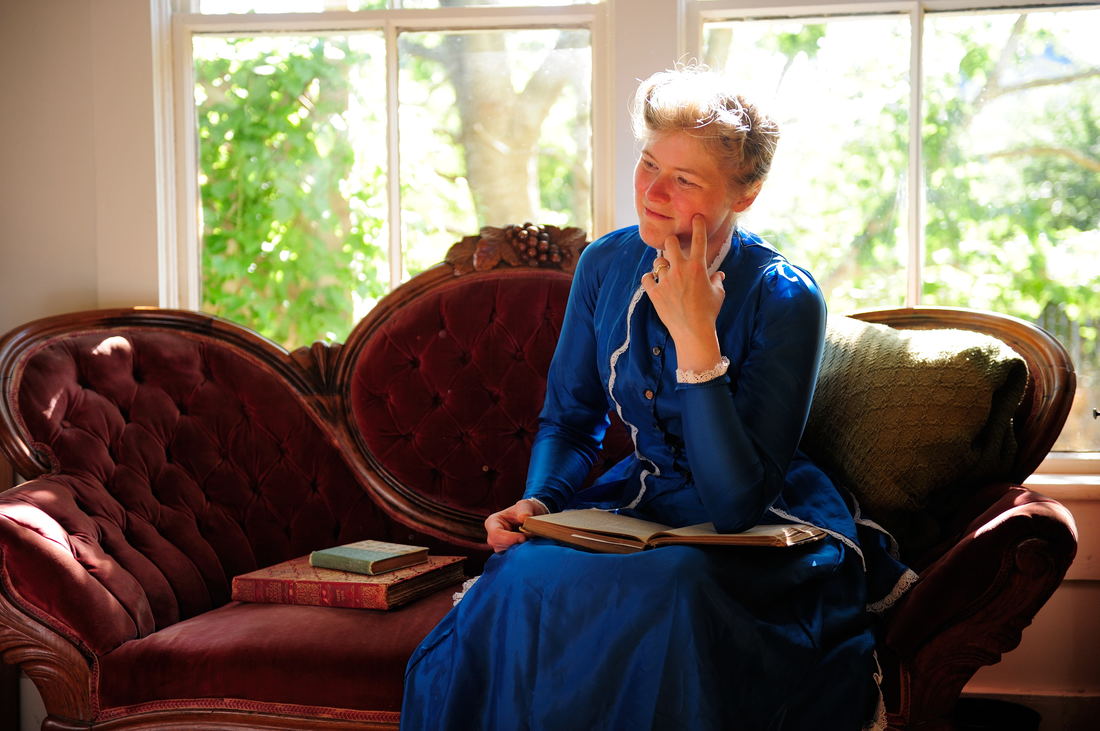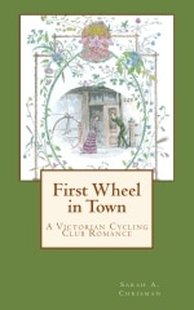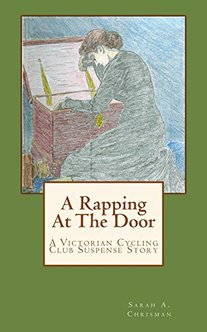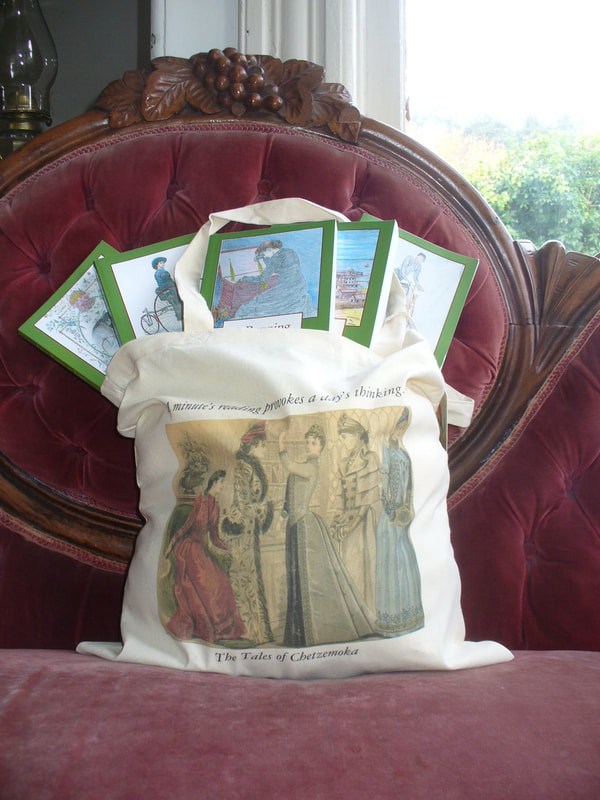First Wheel in Town, the opening story in my Tales of Chetzemoka series, was reviewed by
1 Comment
Books often seem very simple things, yet they open worlds to us. They enable what Thomas Carlysle called "the purest essence of a human soul" to continue telling its story for centuries. When we read we may converse with the greatest minds of any age, laugh with the greatest wits, love with the closest hearts. A good book is not only a window into the author's soul, but also a doorway through which the reader may step, then arrive in the author's world, redolent with all the smells, sights and feelings of their time and place. Unassuming bound volumes are the truest time machines humanity has ever created. On any voyage there is always a danger of culture shock, time travel being no different from any other passage amongst foreign peoples in this regard. It requires a great deal of commitment to fully comprehend a foreign culture. For the uninitiated the differences seem overwhelming. Accumulating enough knowledge of context to even begin to understand it all is a tremendous undertaking. Many people are daunted by the idea of pledging themselves to such a large task and they are unwilling to travel alone —but they will make the journey, with all its rewards and adventures, if they may do so in the company of a kind guide who can explain what they are experiencing. If reading a primary source from a different era is like journeying alone to a foreign land, then reading well-written historical fiction is like travelling under the guidance of a knowledgeable companion. The best guides in travel are the ones who show a culture as it really is, not just as they suppose their guests will want to see it. A tour guide in Europe who only showed her American visitors small communities of American expatriates would be deficient at her task: an author who only uses historical settings as a way to make thinly-veiled social commentary on current topics is an equal failure. However, denying that connections and parallels exist is likewise detrimental to understanding. It would be ridiculous for a guide to race ahead of her visitors covering up foreign products or hiding immigrants in closets so she could give travellers a "real" view of her homeland. Connections and shared ideas do exist between times just as they exist between places; a skilled guide will bring her visitors into situations where they can witness these parallels and draw their own conclusions. The most skillful guides help at interpretation, but at the same time manage to be unobtrusive. A tour guide who carries around an encyclopedia and stops at every streetcorner to read out long, verbatim passages would rightfully be considered a bore. Similarly, I find it very tiresome when an author continually halts their narrative to expound on non sequiturs which do not build their characters or move their story forwards. On a related topic, perpetually calling attention to things which would be mundane for a story's characters insults the readers' intelligence. For example, it is not necessary to call every lamp an oil lamp when writing about a time when electric lights were the rare exception. For inhabitants of the time in question, an oil lamp was just a lamp, and readers understand this. Insistently specifying oil lamp every time one of them is mentioned is a bit like a Spanish tour guide pointing at every pedestrian on a street in Madrid and telling visitors, "He's a Spaniard! So's he! And she's Spanish, too!…" Most of us are smart enough to work out such obvious things on our own. More complicated elements of cultures (past and present) do require interpretation to be comprehensible to visitors, and serving that function is one of the tasks of an author. There is a skill to weaving explanation with narrative. Readers of historical fiction come to the genre because they want to learn something about the past, but at the same time, they want a story —if they didn't, they might as well go for that encyclopedia. It is the job of a writer to satisfy both of these desires. I started my historical fiction series with the tale of the first bicycle in Chetzemoka because I knew that a high-wheel bicycle would be a foreign object to many readers. Since it was also a new piece of technology to the residents of the town I'd created, there was a legitimate reason for explaining its details in the context of the story. If a fact is interesting and pertinent enough to be included but would detract from the story rather than adding to it, then its proper place is in the book's appendix. One of the most memorable tours I've ever taken was of Edinburgh back when I was in college, and was led by a grizzled Scotsman who worked for the hostel where I spent a few days. About halfway through the tour the feud between the Campbells and the MacDonalds came up as a subject; our guide had very strong opinions about that feud, but he told us it was a story for the highlands, not for Edinburgh. It wouldn't be part of the tour but anyone who wanted to hear it should join him in a pub after he'd finished showing us the city and he'd tell us the tale over his pint of Guinness. A book's appendix is a bit like that old pub visit after my tour of Edinburgh: something fascinating and not to be missed, which relates to the story but is still not quite of the story, and is best enjoyed in its own separate space. At the end of every trip comes the return home: fond friends embrace the traveler while begging to hear of the voyage, souvenirs are displayed with pride, and the explorer dreams of returning again to those fascinating foreign lands. There comes a point in the reading of any volume when there are no more pages to turn and it is time to put the book away—for a while. But we've brought back souvenirs from the past in the forms of memories, and the stories we tell our friends of beloved books are just as vibrant as those from physical travel. We will return again to those far off times where the pages bring us, and if we're lucky our friends will buy their own tickets and join us on the journey. My historical fiction seriesIn a seaport town in the late 19th-century Pacific Northwest, a group of friends find themselves drawn together —by chance, by love, and by the marvelous changes their world is undergoing. In the process, they learn that the family we choose can be just as important as the ones we're born into. Join their adventures in |
Tales of Chetzemoka merchandise
Archives
June 2024
May 2024
April 2024
March 2024
February 2024
January 2024
December 2023
November 2023
October 2023
September 2023
August 2023
July 2023
June 2023
May 2023
April 2023
March 2023
February 2023
January 2023
December 2022
September 2022
June 2022
April 2022
March 2022
November 2021
October 2021
September 2021
August 2021
July 2021
June 2021
May 2021
April 2021
March 2021
February 2021
January 2021
December 2020
November 2020
October 2020
September 2020
August 2020
July 2020
June 2020
May 2020
April 2020
March 2020
February 2020
January 2020
December 2019
November 2019
October 2019
September 2019
August 2019
July 2019
June 2019
May 2019
April 2019
March 2019
February 2019
January 2019
December 2018
November 2018
October 2018
September 2018
August 2018
July 2018
June 2018
May 2018
April 2018
March 2018
February 2018
January 2018
December 2017
November 2017
October 2017
September 2017
August 2017
July 2017
May 2017
April 2017
March 2017
February 2017
January 2017
December 2016
October 2016
September 2016
August 2016
June 2016
May 2016
April 2016
March 2016
January 2016
December 2015
November 2015
October 2015
September 2015
August 2015
July 2015
June 2015
May 2015
April 2015
March 2015
February 2015
January 2015
December 2014
November 2014
October 2014
September 2014
August 2014
July 2014
June 2014
May 2014
January 2014
November 2013
August 2013
July 2013
May 2013
April 2013
January 2013
December 2012
November 2012
Author: Sarah A. Chrisman(Known around Port Townsend as "The Victorian Lady" |
Categories
***






 RSS Feed
RSS Feed